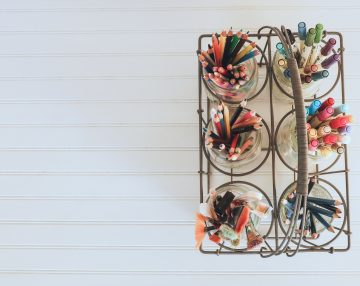Bergamot essential oil is derived from the bergamot orange, a fruit endemic to the Calabria region of Italy. You may already be familiar with its citrusy flavor–it is most notably used in Earl Grey tea! However, this isn’t the only place that bergamot can be found. In fact, bergamot is probably already a part of your everyday life. It is a common ingredient in perfumes, food and drink, and even medicinal products.
What does it do?
The uses of the bergamot orange are many. Pharmacologically, bergamot is useful not only for mitigating unpleasant odors in medicinal products, but for its own medicinal properties as well. Bergamot has antiseptic and antibacterial properties, and has been used commonly to treat infections, parasitic diseases, and minor wounds.
In perfume manufacturing, bergamot is useful for its ability to bring together the different aromatic ingredients of whatever scent it is added to, harmonizing and enhancing the fragrance. Finally bergamot is a common ingredient in many dishes, as it pairs well with many staple spices, enhancing some and contrasting others in order to provide a more diverse flavor profile.
How can I use it?
There are several ways you can use bergamot. Bergamot oil can turn an already tasty dish or drink into something you’d swear came from the kitchen of a five-star restaurant! Here are a few recipes that can get you started:
- Pear wood-smoked mackerel with guacamole and bergamot vinaigrette
- Oysters with roasted eggplant purée and bergamot
- Bergamot cocktail with apricot and bourbon
Bergamot can help relieve some minor health issues you may be having, including, but not limited to:
- Assisting digestion–one or two drops diluted in tea or water can reduce the time that food spends in the colon
- Treating minor wounds–applying a gauze pad treated with one or two drops can prevent infection and scarring
- Relieving pain or soreness–a few drops (mixed with a carrier oil!) rubbed into the skin will alleviate minor aches
And of course, you can use bergamot for your own self-care.
- Mix two or three drops into your shampoo to soften your hair and tame unruly curls
- Mix two or three drops into your facial cleanser to combat oily skin
- Add a few drops to a diffuser for a pleasant, calming aroma throughout your day
- Add to a carrier oil and dab onto painful or unsightly pimples–only do this at night!
- Ask for your massage therapist to incorporate bergamot oil into your sessions to make them extra relaxing
Is it safe?
Bergamot, like most essential oils, is best used in diluted doses. It’s almost never a good idea to consume pure essential oil, and bergamot is no exception. Too much can cause muscle cramps and blurred vision.
Nor is it a good idea to apply pure bergamot to the skin. Bergamot can increase the risk of sun damage when applied topically. In some cases, individuals who underwent extensive sun exposure after having used bergamot for topical aromatherapy developed lesions! If you intend to utilize even diluted bergamot in your skincare regimen, ensure that you only use it at night.
It is also advised that women who are pregnant or nursing avoid bergamot altogether, though evidence pointing to specific adverse prenatal or neonatal effects is admittedly lacking.
If your day-to-day is stressful, if your complexion needs an extra bit of TLC, or if you want to diversify your repertoire in the kitchen, consider bringing bergamot oil into your life!




Leave a comment